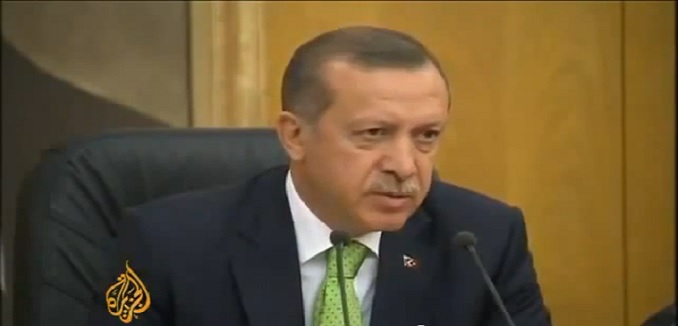The State Department Thursday condemned new Turkish legislation passed last week that places sharp limits on internet use and freedom.
“We share the concerns recently expressed by the OSCE’s representative on freedom of the media – and there was a whole statement that I’d point you to – that these proposed measures are not compatible with international standards on freedom of expression,” Jen Psaki said during a press briefing Feb. 6.
“They also have the potential to significantly impact free expression, investigative journalism, the protection of journalist sources, political discourse, and access to information over the internet. So those are all areas we would be concerned about,” she added.
Turkey’s move to crack down on the internet comes as the Islamist Justice and Development Party (AKP) – which has controlled the country for over a decade – faces arguably the most significant challenge to the rule of Prime Minister Recep Tayyip Erdogan since he took power in 2003. Followers of U.S.-based cleric Fethullah Gulen, who are scattered throughout Turkey’s state and non-state institutions, have been locked in open political warfare with the AKP. Gulenist figures have launched sweeping anti-corruption and anti-terror campaigns that have ensnared top AKP elites, and the AKP has responded with a wave of purges ejecting Gulenists from their positions and jobs. The AKP has also pursued further legislation limiting free expression. Erdogan had already last summer begun mobilizing populist opposition to the use of internet technologies – including and especially social media – when mass anti-government riots broke out over perceptions of government overreach. The new internet regulations, which still have to be approved by Turkey’s president, provide broad mechanisms for blocking websites and dramatically expand the ability of government officials to monitor internet activity. The Australian Times reported Friday that the legislation is being viewed as an attempt by the AKP “to suppress corruption allegations and silence dissent. The New York Times described how websites with details of AKP corruption – including the popular sound-sharing website SoundCloud, where audio was posted of Erdogan seemingly trading zoning favors in exchange for two villas – have been blocked.
Other recordings, also apparently from wiretaps connected with a corruption inquiry linked to Mr. Erdogan and those close to him, have shown up on YouTube, Vimeo, Twitter and other social media sites. Often, just as quickly as they appear, they disappear, only to show up soon after somewhere else on the Internet, like a game of Whac-a-Mole. But now, facing a wide-ranging corruption investigation and a steady flow of embarrassing leaks, the government has moved to more aggressively control the flow of information online by passing — in a late-night parliamentary session on Wednesday — a new set of laws that would make it easier for government bureaucrats to censor the Internet.
Turkey’s top business group, the Turkish Industry and Business Association, had already blasted the new internet regulations as a violation of “the individual’s fundamental rights and freedoms,” and the European Union had similarly expressed concerns.
[Photo: VideoLine 21 / YouTube]




